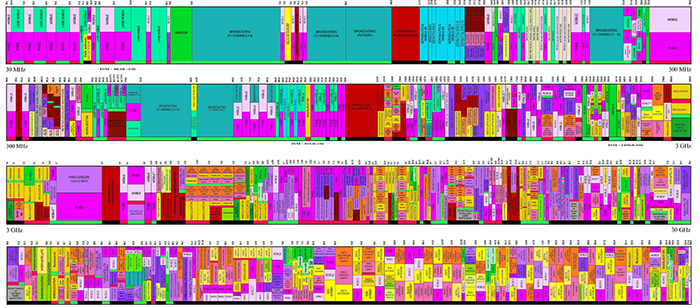
Exploiting Probabilistic Information for Spectrum Sensing
and Utilization: towards Efficient Wireless Coexistence
Prof. Xiangwei Zhou
University of Illinois, Carbondale
11:45am Friday, 7 March 2014, ITE 325b, UMBC
With the rapid growth of wireless devices and applications, the electromagnetic radio spectrum is considered to be in short supply. To overcome spectrum scarcity and satisfy emerging user demands, cognitive radio, which can sense and adapt to the surrounding spectral environment, has been introduced to enhance the utilization of the spectrum. However, it is a challenging task to design a robust and cost-effective system involving identification and reuse of spectrum opportunities changing over time, frequency, and space. In this talk, I will focus on efficient spectrum sensing and utilization techniques for dynamic spectrum access. In particular, I will emphasize the importance of exploiting probabilistic information unique to such a system. I will present novel techniques from the perspectives of both a single user and a multi-user network. In the end, I will discuss further extension of the work to enable the coexistence of heterogeneous wireless networks.
Xiangwei Zhou received his Ph.D. degree in Electrical and Computer Engineering from Georgia Institute of Technology, Atlanta, Georgia, in 2011. He received his M.S. degree in Information and Communication Engineering from Zhejiang University, Hangzhou, China and his B.S. degree in Communication Engineering from Nanjing University of Science and Technology, Nanjing, China, in 2007 and 2005, respectively. Since 2013, Dr. Zhou has been with the Department of Electrical and Computer Engineering at Southern Illinois University Carbondale as an Assistant Professor. Prior to that, he was a Senior Systems Engineer with Marvell Semiconductor, Santa Clara, California, from 2011 to 2013. Dr. Zhou’s general research interests include wireless communications and statistical signal processing, with current emphasis on cognitive radio and heterogeneous coexistence, cyber-physical systems, and cross-layer optimization. He is now serving as an Editor for IEEE Transactions on Wireless Communications.